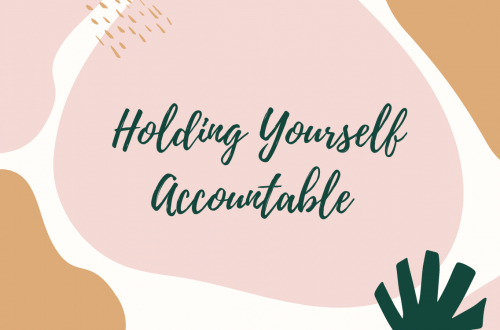Emotional Intelligence
Welcome back!! Emotional intelligence is something I’ve been so excited to share with you! I recently took a course on emotional intelligence and learned many valuable lesson and tools to improve myself mentally.

Emotional intelligence is broken up into 4 different categories. The four quadrants are self-awareness, self-leadership, social awareness, and relational management. While each quadrant is important and relates to one another, it is important to master each quadrant one at a time. This is something that takes LOTS of time! I took this course over winter and am still working on mastering my own emotional intelligence. I am going to discuss each quadrant in more detail below!

Self-awareness is the first and most important quadrant of mastering emotional intelligence. Self-awareness is how you think and feel. What you feel in the moment relates to a moment or memory from your past. Changing your view on a negative event that happened in your past, can create a healthier reaction in the future. This is hard to do! Being in control of how you feel within that moment demonstrates how aware you are of your emotions. Be compassionate towards yourself and the journey you’re on.

Self-Leadership is the quadrant following self-awareness. Self-leadership revolves around the idea of how you are present or show up, rubs off on those around you. How you present and handle yourself when you’re having a bad day can bring down the mood of those around you. In self-awareness we talk about the control you have over your thoughts and feelings. Self-leadership impacts your feelings into actions and your thoughts into words. How you feel should NEVER determine your presence.

Social Awareness is being in tune with those around you. While the first two quadrants focus on yourself, these next two quadrants focus on those around you. Social awareness can be tricky thing to master. It is easy for people to feel responsibility for others feelings or situation when trying to work on social awareness. This quadrant focuses more on the connection with a person rather than the emotions within your relationship. Being there for those around you is incredibly important, but knowing the line between supporting the person and taking on their emotions is very important.

Relational Management is the final quadrant in emotional intelligence. This is taking everything you have learned in the first three quadrants and applying it to your work life, school life and relationships. People who do well in this quadrant are good at conflict management, collaboration, making & sustaining friendships, and handling change. Key skills include curiosity, authentic, and being aware.
Covering a 5-week course in one blog is VERY difficult! I hope you are able to understand the main idea and importance of emotional intelligence. If you are interested in being apart of this course, let me know in the comments. The instructor is very passionate about teaching emotional intelligence. Otherwise, if you have any questions or comments let me know in the comments!



3 Comments
Jeff W
An old friend of mine and I have often thought that intelligence is too rigidly confined to academics and the like. It’s great to see that there are others who see this problem too. Emotional intelligence is just as important as (and arguably more so) academic intelligence. You can succeed greatly in one area of intelligence, yet be completely inept in another. That’s why I think emotional intelligence and other types of intelligence should be valued more.
Austin Dirks
Emotional intelligence is definitely really important. This was a good blog post because it was very informative!
Savannah Bertram
Hi Madison!
I enjoyed reading your post this week. I can always tell you put a lot of thought and care into your work. I remember talking about the four quadrants during my interpersonal relationships class and conflict management classes. Your post is a great refresher.
See you next week!